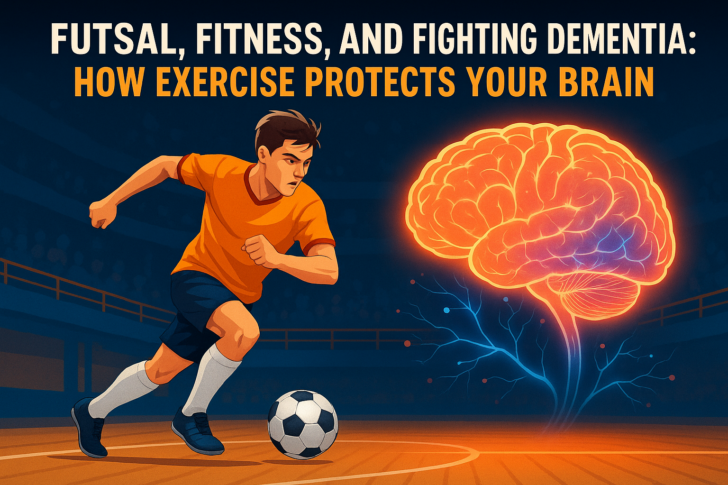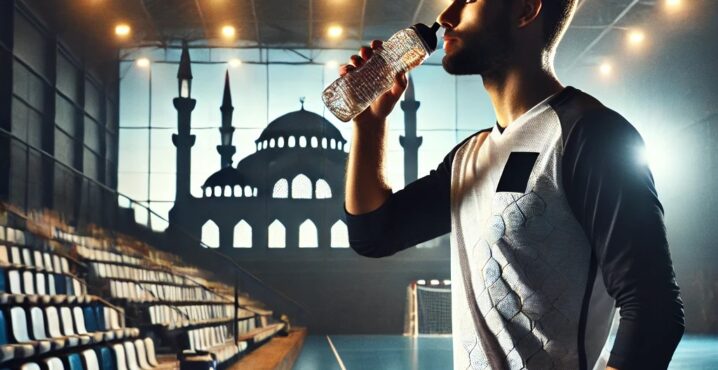Estimated reading time:11 minutes, 37 seconds
Why Players Who Stay Active on the Court Stay Sharper Off It
When sports scientist Alireza Abbasi first shared research with us about exercise and dementia, it was not immediately obvious to us why it would matter to a futsal audience. After all, futsal is about skill, strategy, and excitement on the court, what does brain health have to do with it? However, it has everything to do with it. Regular physical activity, including the kind of high-energy play in futsal, can literally change your brain in ways that protect memory and thinking skills. As we’ll explore, taking exercise seriously isn’t just general health advice; it’s a strategy to keep your mind sharp. And with dementia on the rise globally, this message hits close to home for everyone, including the futsal community.
The Looming Dementia Crisis and the Exercise Solution
Dementia is one of the greatest health challenges of our time. Worldwide, a new case of dementia is diagnosed roughly every few seconds, and it’s estimated that by 2050 over 115 million people will be living with the condition. These statistics are sobering, but there’s a hopeful flipside: mounting evidence shows that exercise can help fight back against cognitive decline.
In one notable study at the University of British Columbia, older adults who engaged in regular aerobic exercise actually increased the size of their hippocampus, the brain’s key memory center . (The hippocampus typically shrinks with age, so seeing it grow is remarkable.) Importantly, this effect was specific to cardio workouts, activities like resistance training and balance exercises alone didn’t produce the same brain boost . Aerobic exercise seems to stand out when it comes to brain benefits. And it’s not just brain structure: many studies have observed that people who stay physically active perform better on memory and cognitive tests than those who are sedentary . In fact, a comprehensive analysis of dozens of studies found that people who exercise regularly are up to 20% less likely to develop dementia compared to inactive individuals . That’s a significant reduction in risk, hinting that exercise truly is a form of preventative medicine for the mind.
What about age, is it ever too late to start? Encouragingly, research suggests even older adults can gain protective benefits by becoming more active. In one study, the least active seniors had more than double the risk of developing Alzheimer’s disease compared to the most active seniors. In other words, any increase in activity, at any age, is likely to help. This is great news for retired futsal players, long-time fans, and older coaches alike: staying involved in physical activity (even if it’s a gentle version) could help preserve your memory and thinking well into your later years.
How Exercise Boosts Brain Health
Why does breaking a sweat benefit your brain? Exercise affects the brain through multiple pathways. On a biological level, workouts trigger a cascade of positive changes: improved blood flow, lower inflammation, better insulin regulation, and the release of growth factors, chemicals that help nourish brain cells and promote the birth of new neurons. Essentially, exercise creates an internal environment where the brain can thrive. Think of it as fertilizer for your brain cells, encouraging them to grow and connect.
Exercise also has powerful indirect effects on mental sharpness. Regular physical activity improves mood and sleep quality while reducing stress and anxiety. Each of those factors plays a role in cognitive function. (If you’ve ever tried to focus after a bad night’s sleep, you know how vital rest is for clear thinking.) By lifting your mood and calming your nerves, exercise removes some of the common roadblocks to effective memory and concentration.
Perhaps most fascinating, brain imaging studies have shown that people who exercise have more volume in areas of the brain that control thinking and memory than those who don’t. Essentially, key brain regions like the prefrontal cortex (responsible for planning and decision-making) and the medial temporal lobe (involved in memory) tend to be better preserved in active individuals. And it doesn’t require years of working out to see a difference, even a 6- to 12-month program of moderate exercise has been linked to growth in select brain regions. “Even more exciting is the finding that engaging in a program of regular exercise of moderate intensity over six months or a year is associated with an increase in the volume of selected brain regions,” notes Dr. Scott McGinnis of Harvard Medical School. It’s as if exercise signals the brain to renovate and strengthen itself, building up cognitive reserve.
Futsal: More Than a Game – A Workout for Your Brain
Futsal players in action, a fast-paced blend of aerobic exercise and split-second decision-making. This high-energy sport gets the heart pumping and the neurons firing.
So how does futsal fit into the picture of brain health? Futsal, like its outdoor football cousin, is a dynamic aerobic activity. During a match, players are in near-constant motion, sprinting, backtracking, changing direction, and executing skills. All of this amounts to a heart-pounding workout that easily qualifies as moderate to vigorous exercise. (In exercise science terms, futsal’s bursts of high intensity are comparable to the exertion of sports like singles tennis or squash . It definitely checks the box for activities that “make you breathe faster and feel warmer,” as aerobic exercise is defined.) In short, a futsal session can get your heart racing enough to confer the same brain benefits as a jog or a gym cardio class, but with the added fun of competition.
Crucially, futsal isn’t just physically demanding; it’s mentally engaging. During play, you’re not simply running mindlessly, you’re constantly scanning the court, anticipating opponents’ moves, deciding whether to pass or shoot, and coordinating with teammates, all in a matter of seconds. Sports psychologists would call futsal a “dual-task” exercise: you’re combining physical exertion with complex cognitive tasks. Research shows that this kind of brain activation during exercise is especially beneficial for cognitive function.
You’re essentially training your brain at the same time as you train your body. It’s no surprise that in sports like soccer and futsal, success often goes hand-in-hand with sharp executive functions (the brain’s high-level thinking skills for decision-making, multitasking, and self-control). Every time you play, you’re honing those mental skills.
The cognitive aspect of futsal might even amplify its protective effects. You’re not just strengthening your heart and leg muscles; you’re also giving your neural circuits a workout. Over time, this could translate to a more resilient brain. Some scientists suggest that engaging in complex activities, like learning new tactics or reacting to unpredictable situations in a match, could build cognitive reserve, which helps delay symptoms of dementia even if physical changes in the brain occur. While research is ongoing, it’s clear that an active body and an active mind is a powerful combination for brain health.
There’s also a social dimension. Futsal is typically played in a team or club setting, meaning it doubles as a social outlet. The camaraderie and social interaction that comes with sport can be another boost for brain health (social engagement is known to support cognitive function and mood). For older adults especially, the social side of playing or even coaching futsal could help stave off isolation. In fact, even modified versions of football are proving valuable for seniors. Take walking football as an example – a slowed-down variant of soccer designed for older players. Participants with dementia have found it hugely beneficial, not only for gentle exercise but also for the mental stimulation of coordinating movements and planning on the field, plus the encouragement of being part of a team. As one player living with Alzheimer’s noted, walking football offers social connection, a chance to use your brain, and the many physical benefits of exercise, all in one package. Futsal, in an appropriately adapted form, could offer the same. The bottom line is that staying involved in the sport you love can contribute to a healthier, sharper mind.
There’s also a compelling case to be made that futsal offers brain-protective benefits beyond what traditional football (soccer) provides. Recent research has raised concerns about frequent heading of the ball in 11-a-side football and its association with long-term brain injury and dementia risk. For example, a Swedish study found that elite footballers were about 50% more likely to develop dementia than the general population, and it specifically noted that outfield players (who head the ball often) had a significantly higher risk of Alzheimer’s and other dementias, whereas goalkeepers (who rarely head the ball) did not show increased dementia risk. This strongly suggests that repeated minor head impacts from heading may contribute to neurodegenerative disease in football. Futsal, by contrast, involves very little heading due to its low-bounce ball and emphasis on foot skills. A futsal player’s exposure to head impacts is minimal, which eliminates one known risk factor for brain injury while still delivering all the upsides of aerobic exercise and team play. In simpler terms: by playing futsal, you get the heart-healthy and brain-boosting benefits of soccer without the added worry of headers and their potential harm.
Making Exercise (and Futsal) a Habit for Life
Knowing the benefits is one thing; making exercise a regular part of your life is another. Health experts recommend at least 150 minutes of moderate-intensity activity per week (or about 30 minutes on most days), or about 75 minutes of vigorous activity weekly for those who prefer to ramp up the intensity. A couple of futsal sessions could cover this target. For instance, two 40-minute futsal games in a week, with their mix of intense bursts and lighter recovery periods, can put you well on track. The key is consistency.
If 150 minutes a week sounds overwhelming, don’t worry. You can start small and build up over time. Even a few minutes of activity each day is better than nothing, and it gives your body and brain a chance to adapt. Try adding 5 or 10 minutes to your routine each week. Many of the participants in the brain studies began by simply walking, eventually working up to an hour twice a week. Every bit of movement counts, whether it’s a casual dribble with a ball in the backyard or a brisk walk through your neighbourhood.
And remember, while futsal might be one of the most exciting ways to stay fit, it’s not the only way. Any activity that gets your heart rate up can help your brain. Don’t like running laps? Consider dancing, cycling, swimming, or even vigorous household chores – whatever you enjoy and can stick with. The best exercise is truly the one you’ll actually do. If you’re passionate about futsal, use that to your advantage: schedule regular pick-up games with friends, join a local futsal league, or incorporate futsal-inspired drills into your workouts. The fun factor will make it easier to keep coming back. And as you do, you’ll reap not just physical rewards but cognitive ones as well.
Finally, approach exercise as you would a critical appointment or a prescription, something you prioritize for your well-being. In the sports science community, there’s a saying that “exercise is medicine,” and it holds a lot of truth. Just as you wouldn’t skip doses of an important medication, you shouldn’t skip your regular physical activity if you can help it. Treat your futsal games or workout sessions as non-negotiable parts of your week. Set reminders, find a workout buddy or team (accountability helps), and track your progress. Over time, being active will feel less like a chore and more like a habit, even a joyful one.
Conclusion: A Win-Win for Futsal Fans and Brain Health
It turns out that what’s good for your futsal performance is also good for your long-term mental performance. Regular exercise helps you play at your peak now and protects your mind for the future. For the futsal community, players young and old, coaches, and enthusiasts, this is a win-win message. By lacing up your shoes and hitting the court, you’re not just chasing a ball; you’re investing in your brain’s health and resilience. So next time you work up a sweat in training or celebrate a hard-fought victory, take pride in knowing you’re also scoring goals for your cognitive well-being.
In summary, Alireza Abbasi’s prompt to “take regular exercise seriously” resonates strongly in futsal. Yes, focus on your tactics, skills, and teamwork, but also recognize that the physical exertion of futsal is building a healthier brain with each session. With dementia projected to rise in the coming decades, this simple act of staying active is one of our best defences. Futsal cannot cure dementia, but it can be part of a lifestyle that dramatically lowers your risk and keeps you sharper, happier, and healthier on and off the court.
Organ Donation
Futsal Focus is a supporter of Dáithí Mac Gabhann and his family’s campaign to raise awareness of Organ Donation. We encourage our readers to learn more about Organ Donation: https://www.organdonation.nhs.uk/
Futsal Focus
You can read more research about futsal by going to the top navigation bar or click here
If you like this article and would like to keep updated on Futsal news, developments, etc then you can now follow Futsal Focus via Google News by following our page which will send you an alert as soon as we publish an article so please click here and follow us on Google.
You can also keep updated on Futsal news, developments, etc so please submit your email below in the Subscribe to Futsal Focus option.
Follow Futsal Focus by clicking on Facebook, Twitter, or Instagram or on the social media buttons on the website.







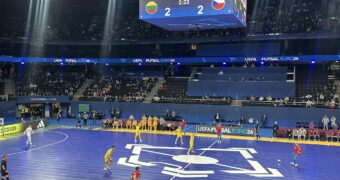
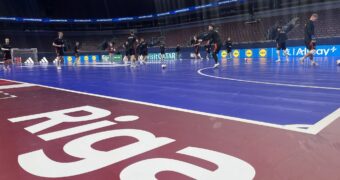
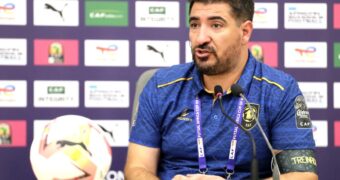

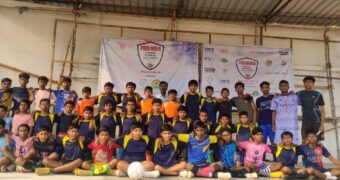

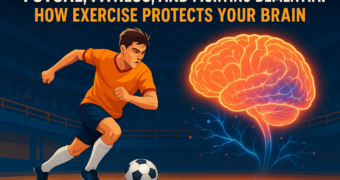


![Validate my RSS feed [Valid RSS]](https://www.futsalfocus.net/wp-content/uploads/2020/01/valid-rss-rogers.png)

